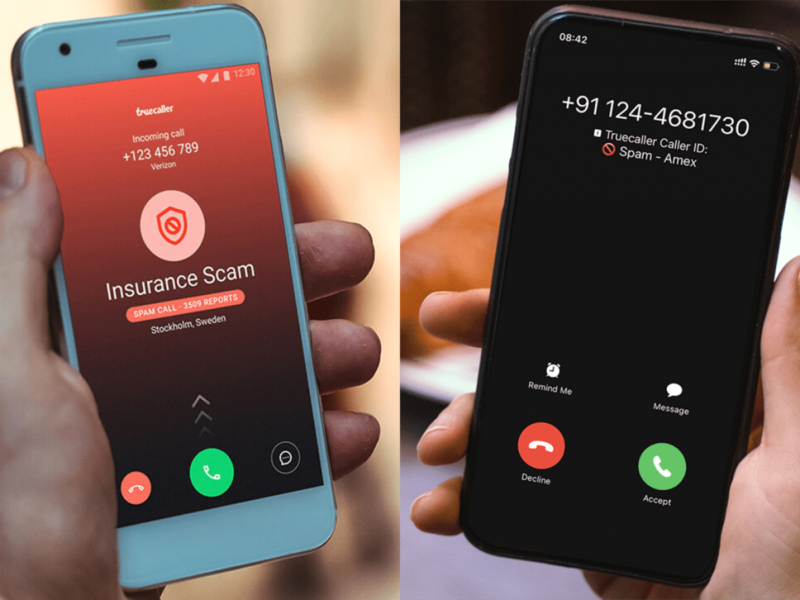Spam call warning in Uk: 02088798587 / 2088798587 / 020-8879-8587 / 020 8879 8587 / +442088798587 / 442088798587
Introduction
spam call 02088798587 2088798587 in uk : The era of advanced technology has brought both convenience and annoyance into our lives. While we enjoy the benefits of smartphones, we also face the incessant nuisance of spam calls.
One such notorious number in the UK, 02088798587, has left many residents frustrated. we will explore the issue of spam calls in the UK, focus on the enigmatic 02088798587, and provide comprehensive advice on dealing with these unwanted intrusions.
Read more : https://thebusinessdays.com/who-called-me-from-01212725077-0121-area-code/
Understanding Spam Calls
Spam calls, also known as nuisance or cold calls, are unsolicited phone calls made by telemarketers, scammers, or automated systems for various purposes, often disruptive and sometimes fraudulent. They can range from marketing promotions and surveys to phishing scams and identity theft attempts. These calls can be a significant source of irritation and, in some cases, financial loss.
The Infamous 02088798587
02088798587 is a phone number that has garnered attention as one of the notorious spam callers in the UK. Reports from affected individuals suggest that the number is associated with various types of spam, including insurance claims, PPI (Payment Protection Insurance)
claims, and accident compensation scams. The caller typically introduces themselves with generic-sounding names and offers services that sound too good to be true. Such calls can be relentless and sometimes target vulnerable individuals, causing distress and financial harm.
The Impact of Spam Calls
Spam calls have far-reaching consequences, both for individuals and society as a whole. Some of the primary impacts include:
- Privacy Invasion: Spam calls violate personal privacy by intruding into our lives without consent.
- Emotional Distress: Receiving continuous spam calls can lead to frustration, anxiety, and emotional distress.
- Financial Loss: Scam calls can lead to financial loss, as individuals may fall victim to fraudulent schemes or provide sensitive information unknowingly.
- Wasted Time: Answering spam calls wastes valuable time and can disrupt daily routines.
- Overloading Emergency Lines: In some cases, spam calls can clog emergency lines, potentially endangering those in need of immediate assistance.
Dealing with Spam Calls in the UK
Thankfully, there are several strategies you can employ to deal with spam calls effectively and mitigate their impact on your life.
- Screen Calls: Use your phone’s call screening feature to filter out calls from unknown numbers. This way, only trusted contacts can reach you directly.
- Use Call Blocking Apps: Many apps are available for both Android and iOS devices that can identify and block known spam numbers. Some even allow you to create a custom blocklist.
- Register with the TPS: The Telephone Preference Service (TPS) in the UK allows you to opt out of unsolicited marketing calls. Registering with the TPS can significantly reduce the number of unwanted calls you receive.
- Report Spam Calls: Report spam calls to your mobile carrier, as they may be able to take action against the spammers.
- Be Cautious with Personal Information: Avoid sharing personal or financial information over the phone, especially if you receive an unsolicited call.
- Educate Yourself: Learn to recognize common scam tactics. Legitimate organizations will not pressure you for immediate action or personal information.
- Change Your Number: As a last resort, changing your phone number can provide temporary relief from persistent spam calls.
Legal Framework Against Spam Calls in the UK
The UK has established regulations to combat spam calls, providing consumers with some protection:
- Data Protection Act: The Data Protection Act restricts the unsolicited use of personal data for direct marketing.
- Privacy and Electronic Communications Regulations (PECR): PECR sets rules for electronic marketing communications, including requirements for consent and opt-out options.
- Fines and Enforcement: Regulatory authorities, like the Information Commissioner’s Office (ICO), have the power to fine companies for violating these regulations.
Conclusion
The battle against spam calls, including the infamous 02088798587 in the UK, is an ongoing one. While the authorities are taking action and regulations are in place, individuals must also be proactive in protecting themselves. By using the available tools, reporting spam calls, and being vigilant, we can collectively reduce the impact of spam calls on our lives. Remember, you have the power to reclaim your privacy and peace of mind in the digital age.
FAQ
-
What should I do if I receive a spam call?
- If you receive a spam call, it’s best to ignore it or let it go to voicemail. Do not engage with the caller. If the calls persist, consider reporting them to the ICO and your mobile carrier.
-
How can I stop receiving marketing calls and spam texts?
- You can register with the Telephone Preference Service (TPS) to opt out of marketing calls. For spam texts, forward them to your mobile carrier using the shortcode ‘7726’ to report them.
-
Can spam calls be harmful or dangerous?
- While most spam calls are annoying or attempt to trick you into giving out personal information, some can be scams designed to defraud you. Be cautious and avoid giving out personal or financial information to unknown callers.
-
Why do I still receive spam calls even after registering with TPS?
- TPS registration reduces but does not eliminate spam calls. Some organizations may still contact you, such as charities or companies with which you have an existing relationship. TPS registration helps reduce unwanted marketing calls.
-
How can I block spam calls on my smartphone?
- You can use your phone’s built-in call-blocking features. Additionally, you can install third-party apps designed to block spam calls. These apps often rely on crowdsourced databases to identify and block spam numbers.


















